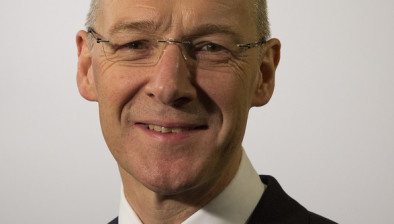CIOT: Scottish Budget should accelerate council tax reform plans

The Scottish Government should use next month’s Budget to accelerate their ambition to reform Council Tax if it is going to happen by the time of the next Scottish election, according to the Chartered Institute of Taxation (CIOT).
The CIOT has responded to a Scottish Government consultation on tax priorities for the 2021-26 Scottish Parliament and ahead of the Scottish Budget on 9 December, where it noted the Scottish Government’s commitment to reforming council tax contained in this year’s Programme for Government.
With previous attempts to reform local government taxation – most recently 2015’s Commission on Local Tax Reform – resulting in only minor reforms – the CIOT and its Low Incomes Tax Reform Group (LITRG) said that Ministers should aim for “full consultation followed by the commencement of substantive reform during this parliament – otherwise there is a risk that reform will simply be delayed yet again”.
An agreement this summer between the Scottish Government and Scottish Green Party promised to set up a Citizens’ Assembly to discuss council tax reform, but it stopped short of setting out concrete proposals for reform and a timetable for introducing legislation.
In its tax manifesto for the Scottish elections, jointly produced with ICAS (Institute of Chartered Accountants of Scotland) in April, the CIOT said that council tax reform could provide politicians with “the most straightforward option for reform” of existing taxes during the 2021-26 parliament.
Scottish Ministers have since ruled out major changes during this parliamentary term to two of the main taxes under their control – Scottish Income Tax and Land and Buildings Transaction Tax (LBTT).
This limits the scope for significant changes to the taxes already under Holyrood’s control.
Joanne Walker, Scottish technical officer for CIOT, said: “A Citizens’ Assembly on council tax reform will allow a range of opinions to be heard and it is welcome that the Scottish Government is committed to consultation and engagement.
“If the Scottish Government is serious about its commitment to deliver reform, then we need to have a clearer understanding from Ministers about what they want to achieve from this process, how a reformed council tax can support their stated objectives of creating a fairer and greener country, and a clearer timetable for introducing legislation to Holyrood.
“Otherwise, there is the risk that another attempt to reform local government finance will end up delivering less than it set out to achieve.
“With each of the parties in the Scottish Parliament committed in some shape or form to council tax reform, and with major changes to other Scottish taxes unlikely, this seems likely to be the best opportunity that Ministers will have to use Scotland’s existing tax powers to put their principles into practice.”









